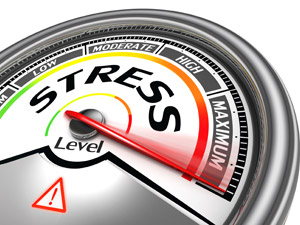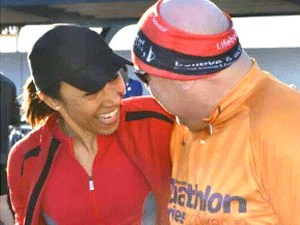Rapid Weight Loss Program: Is it a good idea to choose a rapid wight loss program as a way of arriving at your ideal weight? Many experts agree that these days, when selecting what is the best way for you to lose weight, it’s important to look at the big picture. As the percentage of Americans that are overweight seems to rise on an annual basis, the amount of supposed experts that think they can combat this problem rises with their own diet program continue to come out of the woodwork. Their claim is that their quick weight loss diets will help you shed those extra pounds almost effortlessly. These rapid weight loss programs are rarely what their founders make them out to be.

For starters, while these methods can help you shed pounds quickly, they rarely have the long-term effects that you would like. More often than not, while you will find that they shed pounds rapidly when you’re on the diet, those same pounds can come back with a vengeance once you’re off of it. This happens for two primary reasons.
Rapid Weight Loss Program
When you try a Rapid weight loss, many of the pounds that you’re losing are water weight. The goal is to get the body to metabolize and burn body fat, though. Most studies suggest that people on Rapid weight loss tend to lose between two and three pounds of water weight per pound of fat that they lose. Once you’re off of that diet, the water weight can come back very quickly.
The human body has a way of adjusting its metabolism to battle a drop off in caloric intake. By using a Rapid weight loss program, you’re drastically reducing your caloric intake immediately. Once the metabolism has dropped significantly enough, the body will make sure that it doesn’t burn off calories as quickly to maintain its weight. At that point, no matter how hard you try, you’re unlikely to continue losing weight because of the reduced metabolism. This is another reason people on Rapid weight loss tend to lose weight quickly when they first start the program, but gain it (and often more) back weeks later.

While gaining the weight back after a rapid weight loss program is half the battle, though, the content of the weight that they’re losing is equally important. Without proper exercise to go along with the diet, you will soon find out that a significant portion of the weight you’re losing is not fat, but muscle. Even in extreme cases, quick weight loss diets will help you shed four to five pounds of fat per week. If you’re losing twenty pounds, though, while a considerable amount of that is water weight, you’re also losing weight in other areas where you don’t want to lose it. Most Rapid weight loss focus more on cutting into your calorie intake right away than anything else, which means you’re not the only one starving … your muscles are, too.
If the potential to gain the weight back and the loss of muscle tone isn’t enough to lead to other safer options than a Rapid weight loss program, the potential to develop health concerns should be. The most common medical side effect of a Rapid weight loss program is the likelihood that you will develop gall stones. When you’re losing so much weight in such a short period of time, the contractions of the gall bladder tend to shift, meaning that many of the methods used in rapid weight loss, such as going longer periods without eating, can have a negative effect.
Another problem that rapid weight loss can lead to is loose skin. This is, of course, an obvious side effect. The skin is fully developed around the muscles and the fat that you’ve stored over time, but it can hang when you’ve suddenly lost a significant amount of weight in a short period of time.
Finally, rapid weight loss can even lead to eating disorders. By suggesting you occasionally starve yourself or limit yourself to certain food groups, these quick weight loss diets often begin with a short-term type of anorexia. However, quick weight loss diets can also tend to lead to bulimia, often giving you urges to binge and purge.
While rapid weight loss certainly tend to serve some people’s immediate needs, they’re definitely not a long-term solution if you’re looking to shed a lot of weight in the long run. Simply put, quick weight loss diets usually just lead to bigger problems down the road.
Diets that promote rapid weight loss help you lose weight faster than your body would choose for itself. As you first start the diet you will lose weight quite rapidly since you will be expending a lot of water that has been held in your body by excess carbs and proteins. These rapid weight loss diets are very popular, but they are not permanent solutions to weight loss. Unless you change the way you eat and what you eat, while keeping up with a regular workout routine, the results will only be temporary.
Some would suggest that this means that rapid weight loss ultimately do not work. To the contrary, they work very well but only when they are used properly. Anyone who misuses a rapid weight loss program will soon realize that they can’t keep up with it forever and will soon give up and gain back all the weight the initially lost. To avoid this, you must understand how a rapid weight loss program might fit into your overall weight loss agenda.
These types of diets are not meant to be followed for long periods of time. In fact, if you try to follow a rapid weight loss program for very long your body will recognize the large energy deficit you have created in your body and will respond by lowering the metabolism all together. This results in a plateau in your diet where you simply stop losing weight and a major decrease in energy. Rapid weight loss will jump start your weight loss program and should be followed by a more reasonable, manageable methodology that will help you keep the weight off.
How Rapid Weith Loss Can Work
While rapid weight loss may work well on their own for some people, they are much more beneficial when coupled with a regular workout regimen. Performing any vigorous activity for about thirty minutes a day three to five days a week will do the trick. However, if you haven’t followed a regular exercise program recently you ‘d be better off if you eased your way into it. Since you may be out of shape its safer not to push yourself too hard at first. And if you find the workouts too difficult you are much more likely to stop doing them.
You’ve likely heard someone say that breakfast is the most important meal of the day. Well, it’s true, and even more so for anyone looking to diet. The average obese person will skip breakfast all together which makes them hungrier later in the day and overeat to satisfy their self. As long as you eat three meals a day, you will most likely not have to suffer any bouts with hunger. If you do find yourself eating more than you should at each meal it is a good idea to split your meals up into five. This way you can completely avoid hunger all together and not have to worry about binge eating.
Your meals should be a well-balanced mixture of low fat foods such as whole grains, vegetables, and water. You should always be prepared for every meal and know exactly what you are eating and how much is too much. It is often best to prepare meals from a preselected menu of healthy recipes that allow you to know every ingredient. Eating out is not out of the question, but your restaurant and food selection must be made with your health in mind. Eating at random places at random times of day is never a good idea.
A rapid weight loss program most likely will get you nowhere unless you make the permanent lifestyle changes necessary to keep the weight off after you initially lose it. After you reach your target weight, maintain a manageable and healthy diet that will keep you looking your best for years to come.




